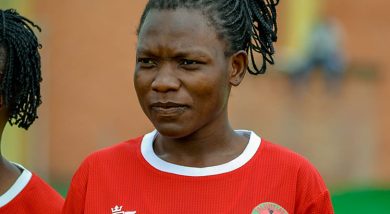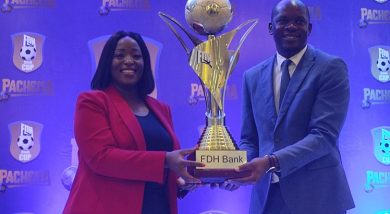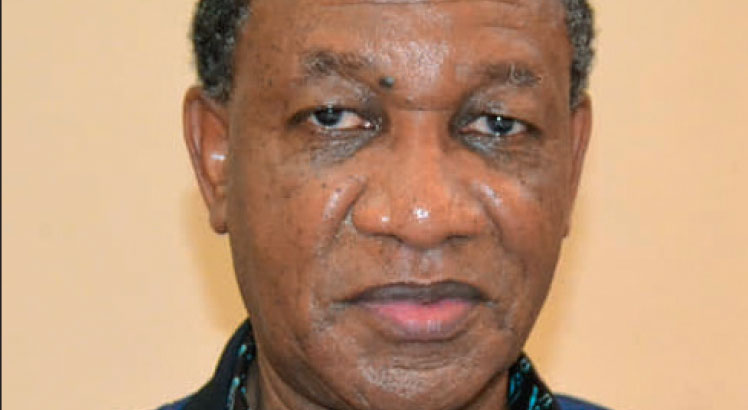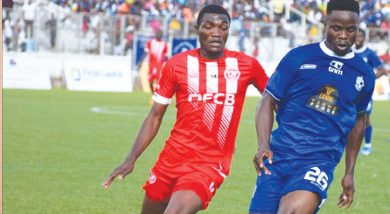Sports budget mess
 Government will continue spending K383 million taxpayers’ money on almost all 43 registered sports associations despite most of them being inactive and the Sports Council struggling to audit them. Minister of Sports Enoch Chihana and Sports Council executive secretary George Jana during the week confirmed that it is only Golf Union of Malawi and Squash Malawi Association that do not solely depend on government funding for their operations as they do some income generating activities.
Government will continue spending K383 million taxpayers’ money on almost all 43 registered sports associations despite most of them being inactive and the Sports Council struggling to audit them. Minister of Sports Enoch Chihana and Sports Council executive secretary George Jana during the week confirmed that it is only Golf Union of Malawi and Squash Malawi Association that do not solely depend on government funding for their operations as they do some income generating activities.
Nation on Sunday investigations revealed that 15 associations receive funding despite doing little or nothing to uplift the standards of their disciplines in the country whereas 20 are relatively active. At least, eight associations were recently chopped from the list of beneficiaries of the annual sports budget for being ‘completely flat’ on the ground. According to Jana, the 15 inactive bodies that continue getting government’s funding are Angling Society, Bowling Association, Basketball Association, Cricket Union, Handball Association, Kyokushinkai Association, Korfball Association, Malawi Paralympics, Police Sports Association, Taekwondo Association, Wushu Association, Judo Association, Archery Association, Table Tennis Association and Draught Association.
He said the performing bodies include FAM, Netball Association of Malawi, Malawi Olympic Committee, Athletics Association, Boxing Association, Chess Association, Darts Association and Cycling Federation. The others are Equestrian Association, Hockey Association, Kendo Association, Lawn Tennis Association, Aquatic Union, Pool Association, Special Olympics, Tertiary Schools Sports Association, Volleyball Association and Weightlifting Association. The Sports Council boss also said Badminton Association, Karate Association, Baseball Association, Rugby Association, Rifle Association, Sports Medicine Association, Parachute Association and Wrestling Association were scraped from the list of beneficiaries. However, Jana could not disclose how much is spent on the inactive bodies but said each gets an allocation within the range of K1 million and K5 million per year. Currently, FAM is the biggest beneficiary of the sports budget where it draws about K200 million subvention, whereas the Equestrian Association of Malawi, which manages horse-racing, is the least recipient with a K400 000 annual subvention.
Jana explained that most of the sports bodies prefer using their allocations on trips to international competitions than concentrating on developing their sports disciplines on the ground. “The problem is that most people get into sports administration for personal gains rather than helping to uplift the standards of sports,” he said. But Chihana justified the continued financial support to the non-performing bodies, saying this will be against government’s plans of promoting diversity in sports. Chihana said: “We find ourselves in a fix [whenever we contemplate] freezing subvention to the concerned associations because we realise that if we do that, it is our dear athletes that will suffer as they depend on the associations to participate in international competitions or strike professional deals abroad.” While agreeing with Chihana on the consequences of stopping funding local sports bodies, Jana said the council struggles to follow up on what the sports entities do with their allocations because it is inadequately funded to hire auditors that can assess how the associations perform financially.
According to him, the council cannot afford the minimum of K2 million that the auditors demand to check accounts of a single sports body as the get K184 million per year for heir operations insteadof the required K3 billion. “It is always our wish to ensure that we follow what the associations do with the money but we cannot afford to hire auditors as we [the council] are also inadequately funded,” Jana said. When asked what the government will do to ensure that it does not lose a lot of money on associations that do nothing, Chihana said his ministry is planning to amalgamate associations whose disciplines are similar so that government can easily monitor them. He said although it will be difficult to achieve this, considering that each discipline is affiliated to a different international federation, the merging of the bodies is a worthwhile idea that can help save money and promote efficiency. “For example, the Lawn Tennis Association of Malawi and Table Tennis Association of Malawi can operate under one roof but do their activities separately. However, I will reveal more on this once I consult sports experts,’ he said.
On the auditing problems that the council faces, Chihana said his ministry will use government’s internal auditors to evaluate local sports bodies’ financial accounts. While confirming that her association has been dormant, Korfball Association of Malawi president Ireen Luka said her committee is working on resuscitating the body. “Of course, we have been silent for the past two years, but now we are bouncing back. We will have an executive meeting soon to map the way forward,” she said. Sports analyst Charles Nyirenda agreed with Chihana on the need for local sports bodies to develop a habit of generating their own income for their day-to-day operations and take sports as an investment.
“Government is there to assist the sports bodies and not to be a sole provider of funds. It is this mentality of taking government and companies as donors and not partners that drives the corporate world away from supporting local sports,” said Nyirenda.





